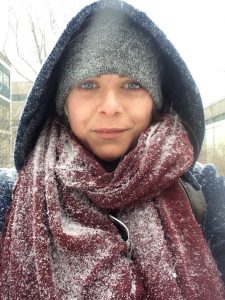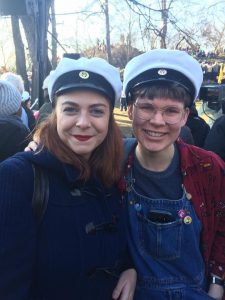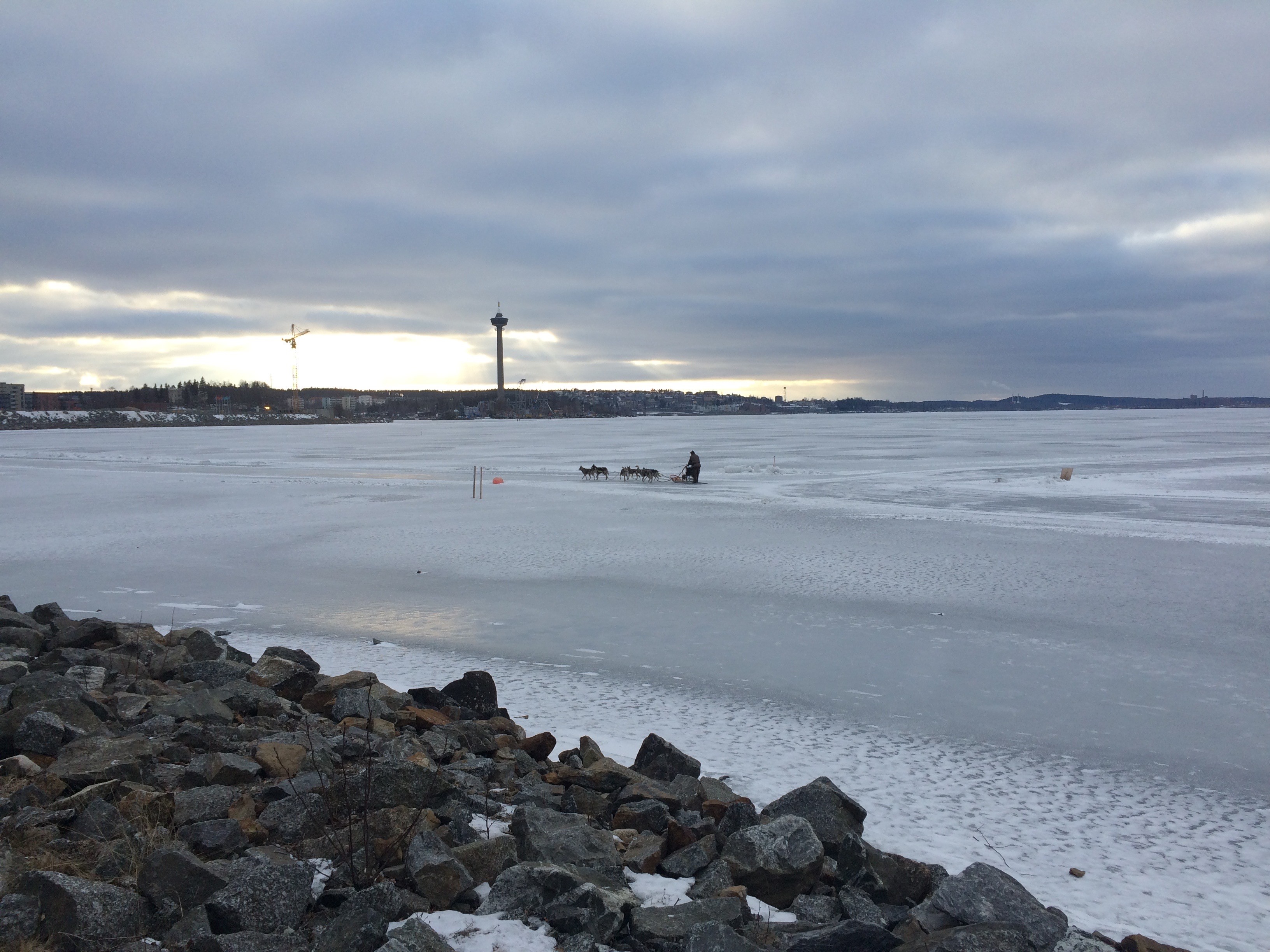Pre-departure:
Preparation for going abroad was certainly more work than I anticipated. I had to organise five months worth of medication, organise health insurance, and apply for a visa. The visa application itself was not particularly painful, I was quickly granted a residence permit that I had couriered to my home. It is important to note that the only Finnish embassy is in Pretoria, so I had to fly there for my interview and to get my fingerprints recorded. It was also very expensive to apply for this residency permit – 300 euros, which works out to about R4500, so I had to make sure to budget for this from my travel bursary.
I also had to make sure that I had enough warm clothes, since I arrived in Finnish winter. I knew Finland is very expensive, so I tried to bring as much as possible from home. I borrowed some things from family and friends, and requested gifts of thick socks and beanies, but some of it I bought myself before going. I think it’s an excellent idea to borrow what you can, but I wouldn’t recommend buying anything for cold weather. South Africa’s clothing is not much cheaper than in Finland, and it’s hard to find clothes that are actually warm enough. For example, I only found one pair of woman’s waterproof, insulated boots, and they were extremely expensive. When I landed in Finland, it was mid-season sales (which are on for about the first three weeks of January), and there was much more variety of winter clothes which was actually cheaper than in South Africa.

While on exchange at Åbo Akademi, you get a stipend, which is enough to live off, but only just, and with no extra money for traveling (even elsewhere in Finland). For that reason, I’d suggest trying to make some money or save some money before going. It is possible legally to work while there, but it’s not easy to get a job if you don’t speak Finnish. However, even if you get an unpleasant job such as cleaning or washing dishes, the minimum wage is 8-10 euros an hour, so it’s definitely worth it.
Experience at Host University:
I absolutely loved my host university, Åbo Akademi. It’s the only Swedish-speaking university in Finland, and it’s very small, but I found the education to be of a very high quality. I enjoyed the fact that many of my courses were interdisciplinary, and also had students from the Finnish-speaking university (University of Turku). The style of teaching is a little bit different there than Stellenbosch – the lecturers are given more freedom in designing modules, and usually are able to teach their current research interest. As such, several of my courses were being offered for the first time. Further, the classroom is an almost collegiate space where the lecturer and the students work out problems together much on the same level (in other words, it’s less hierarchical than South African universities). We were free to choose our own essay topics and answer from the perspective of our own disciplines, and it was interesting to engage with students from other disciplines in this way. Since I’m a Masters student, this format worked incredibly well for me – I loved being treated as a peer to the lecturers, and found the work much more engaging because I was able to direct my studying to me interests. I was also struck by the fact that the lecturers there intend to learn from their students, and I had the satisfying experience of not only telling lecturers what I learned from their course, but also having lecturers tell me what they learned from my contributions and how it would impact their research.

This style of teaching is akin to how Honours programmes are taught in Stellenbosch (at least in philosophy, which is what I studied). I therefore had a similar experience at Åbo and at Stellenbosch during my Honours programme. However, the classes at Åbo are a mixed group of undergraduates and postgraduates, which means that their entire education takes place in this style. The upside is that there is more room for creativity and innovation, but the downside is that it was noticeable that these students didn’t have as solid a knowledge base from which to work from – their knowledge was patchy, but deep, whereas our undergraduate provides us with a much more complete, general education, even if that is somewhat more superficial. Personally, I prefer the latter, since I think it is appropriate to introduce a level of specialization only after undergraduate, once a solid base of knowledge has been laid down. It is interesting for me that though this university devotes an order of magnitude more resources to their undergraduates, I did not think the quality of education was superior to that of Stellenbosch, which is to say that I think both are excellent. I was very aware when in class both with local students and other exchange students that my education at Stellenbosch University has been absolutely world-class, surpassing the education of some that had been educated in developed countries.
Return to South Africa:
My return to South Africa has, in some ways, been very seamless. I know many people go on exchange at the end of a degree or at the end of a lease, but my exchange was more of a break from my ordinary life for five months. When I returned, I moved back into my room in my flat, and I will resume my work in the spring. For this reason, it almost feels like travelling back in time – in some ways, it feels that I never went anywhere at all.

However, of course there are ways in my thinking has changed. I lived in a welfare state for five months, and as a result, I have different views of distributive justice – I really think, now, that South Africa isn’t nearly socialist enough. I think differently about what citizens are entitled to, and I feel that high-quality free education is absolutely essential, as well as health-care, good unemployment grants, and better support for those with children. I became aware of how capitalist and consumerist South Africa really is, and the problems with this, as well as some of the benefits that come with it. For instance, it is cheap and easy to have a wonderful life in South Africa with access to incredibly cheap food and drink and lifestyle experiences. On the other hand, the poverty here is unconscionable, the benefits that people are entitled to are meager, and workers are insufficiently protected. Going on exchange has thus definitely made me rethink about how one organises a just society.
It has of course also been incredible to be back because of how vital Cape Town is; how much there is to do here, and how amazingly cheap this country is. South Africa is also a far more beautiful country than Finland, and people are nicer here. In those respects, it’s been lovely being back.
I would definitely like to go abroad again. I hope to do my PhD somewhere in Europe perhaps as early as 2018. I would also like to live in a Nordic country for some years in my life because I think the way they organise their societies is so far superior to the rest of the world. For example, in Sweden, having a family does not require the monumental sacrifices that are required of South African parents – this is because the state provides such support in the form of money, health care, parental leave, and childcare. For these reasons I think that though I would never start a family in South Africa, if I live in Sweden, I would consider it. That being said, though I’d like to travel and live abroad for some years, I can still imagine settling down in South Africa.

